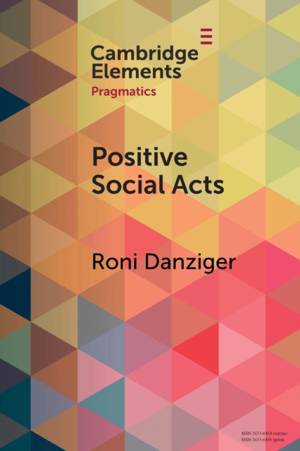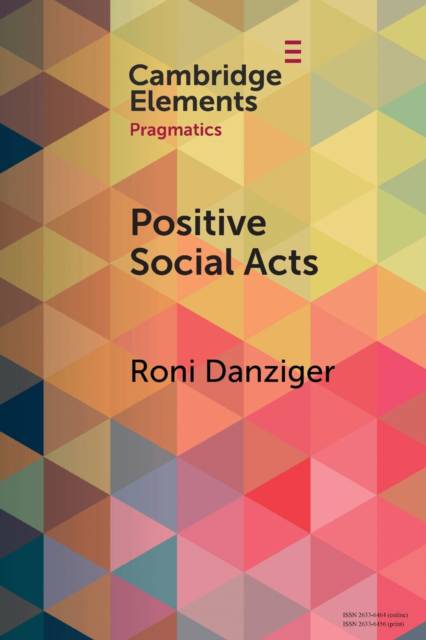
- Afhalen na 1 uur in een winkel met voorraad
- Gratis thuislevering in België vanaf € 30
- Ruim aanbod met 7 miljoen producten
- Afhalen na 1 uur in een winkel met voorraad
- Gratis thuislevering in België vanaf € 30
- Ruim aanbod met 7 miljoen producten
Zoeken
Positive Social Acts
A Metapragmatic Exploration of the Brighter and Darker Sides of Sociability
Roni Danziger
€ 31,95
+ 63 punten
Omschrijving
Sociability is friendly behavior that is performed by a variety of positive social acts that are aimed to establish, promote, or restore relationships. However, attempts to achieve these interactional goals can fail or backfire; moreover, interactants may abuse these strategies. A pragmatic focus on positive social acts illuminates the ways they succeed in promoting sociability and why they sometimes fail to enhance social relations. This Element analyzes positive social actions receiving positive and negative meta-pragmatic labels, such as firgun and flattery, in the Hebrew speaking community in Israel. Adopting a meta-pragmatic methodology enables a differentiation between positive communication and its evaluation as (in)appropriate in context. The conclusion discusses the fuzzy line between acceptable and unacceptable positive behavior and the benefits and perils of deploying positive social acts in interaction. It also suggests a conceptualization of the darker and brighter sides of sociability as intrinsically connected, rather than polar ends.
Specificaties
Betrokkenen
- Auteur(s):
- Uitgeverij:
Inhoud
- Aantal bladzijden:
- 75
- Taal:
- Engels
- Reeks:
Eigenschappen
- Productcode (EAN):
- 9781009184427
- Verschijningsdatum:
- 5/01/2023
- Uitvoering:
- Paperback
- Formaat:
- Trade paperback (VS)
- Afmetingen:
- 152 mm x 229 mm
- Gewicht:
- 113 g

Alleen bij Standaard Boekhandel
+ 63 punten op je klantenkaart van Standaard Boekhandel
Beoordelingen
We publiceren alleen reviews die voldoen aan de voorwaarden voor reviews. Bekijk onze voorwaarden voor reviews.











